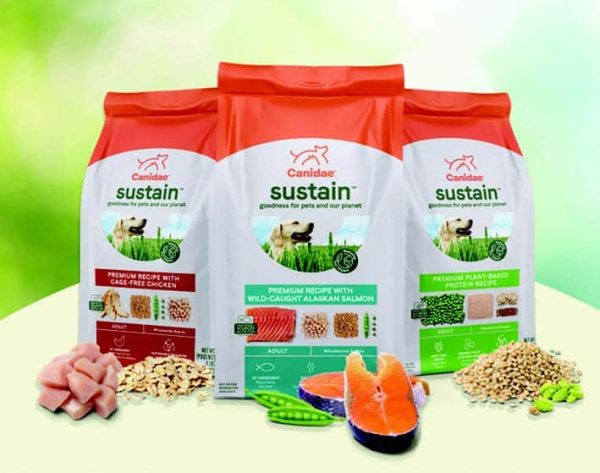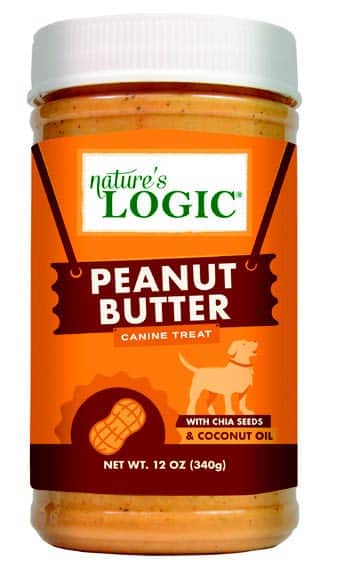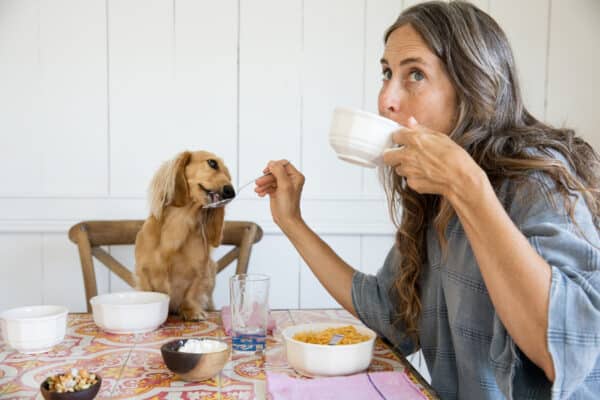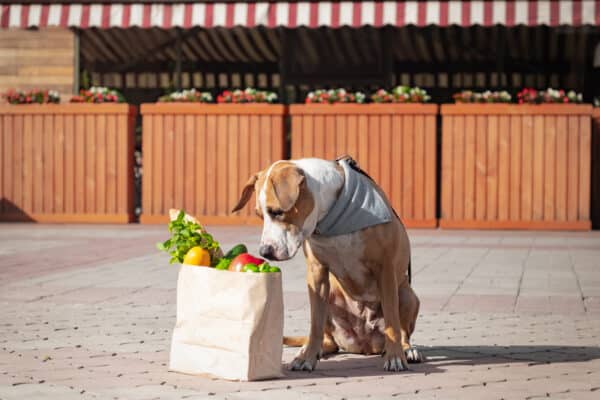Disclaimer: If you purchase items through links on our site we may earn a commission.
You and your dog can play a small but important role in making our planet healthier by switching to a low-carbon diet or supporting a food company making other sustainabiity choices as part of its business model.
Going green in the food bowl is a giant step in being kinder to our planet. Serving up plant proteins and insect-based proteins more than traditional beef and poultry proteins translates to less carbon monoxide, fewer trees cut, less greenhouse gas emissions on the planet and much more. Consider that American dogs and cats rank fifth in consumption of meat globally, according to a 2017 University of California, Los Angeles study.
“We are entering an era in pet food that I am excited and fascinated about,” says Dr. Lindsey Bullen, a board-certified veterinary nutritionist who practices at the Blue Pearl Veterinary Specialty Hospital in Cary, North Carolina. “Because I have two small children, sustainability is very important to me. I want the Earth to be here in good condition for our kids and their kids and the future.” Using traditional meat sources is not bad, but commercial meats can make up nearly 60% of all greenhouse gases from food production, which make up a third of all planet-heating gases emitted by human activity. “There are so many species of bugs everywhere, and they are nutritious. It makes sense to look at bugs — yes, bugs — that leave a much smaller carbon footprint and are significantly cheaper to manufacture [food from] that our pets don’t mind to eat.”
Companies getting their green on
Purina launched dog and cat food called Beyond Nature’s Protein that contains plant protein (fava beans and millet) as well as insect protein (black soldier fly larvae) in late 2020. The pet food company is also partnering with Reforest’Action so that a tree is planted to aid reforestation for every one of these products sold.
In a press release, Bernard Meunier, Nestle Purina Petcare chief executive officer said, “With our new Beyond Nature’s Protein dry pet food, we are offering a complete nutritious alternative to conventional dog and cat products, while taking care of the planet’s precious resources by diversifying the protein sources.”
The company Jiminy’s produces Good Grub Dog Food and Training Treats that are made with grub protein. “The grub (black soldier fly larvae) is tiny, but its nutritional footprint is enormous,” says chief executive officer Anne Carlson. “The grub is a complete protein, so your dog gets all the essential amino acids he needs for good health. Grub protein is very digestible and high in fatty acids, omegas, choline and Vitamin B, along with minerals like calcium, phosphorus, magnesium and potassium. Smaller animals are more sustainable because they need less land and water, and you can’t get much smaller than crickets or grubs.”
According to Anne, switching one dog from a chicken-based diet to an insect-based diet can save 480,000 gallons of water per year. Anne encourages pet parents to do their homework by looking at the insect protein sourcing.
“We use North American-sourced insects, which allows us more oversight on how they’re raised,” she says. “We are hoping to inspire more sustainability within the pet industry. Pet food that’s good for the planet shouldn’t be a luxury — we all need it.”
InClover, the makers of natural pet supplements since 1996, proudly posts on its website that the Boulder, Colorado-based company has saved 99% carbon imprint using wind power at its office, reducing water usage by 40% and sustainably manufacturing more than 35,000 climate-friendly products since 2020. It is also on track to earn B-Corporation Certification for making climate-friendly products.
“Sustainability is woven into the DNA of InClover,” says Rebecca Rose, president. “The pet industry has a passion for pets, people and the planet. Collaboration throughout
the pet industry has allowed us to leverage our impact.”
Nature’s Logic takes sustainability seriously in many ways. The company’s website devotes an entire section to how it practices clean energy, doing its part to combat climate change, using GMO-free millet and sustainable, certified seafood and using recycled kibble bags that use less plastic.
“Nature’s Logic has achieved the industry’s first carbon neutral distribution system and has introduced certified plastic neutral packaging to the industry, allowing us as a brand to help offset the impact we have on the planet,” says David Yaskulka, senior vice president in charge of corporate social responsibility at Mid America Pet Food (MAPF), which includes Nature’s Logic brand.
Canidae is all about sustainability with its Canidae Sustain dog food line, featuring responsibly sourced proteins (cage-free humanely raised chicken and wild-caught Alaskan salmon), ingredients with regenerative farming practices and packaging comprised of 40% post-consumer recycled materials. There is even a vet-formulated plant-based option.
On task with the Pet Sustainability Coalition
Taking on a leadership role in this environmentally friendly movement is the Pet Sustainability Coalition. This nonprofit group teams up with manufacturers, suppliers, distributors, brands and retailers to share ways to solve sustainability issues. That means more focus on producing pet foods with quality byproducts so they are not dumped in landfills only to emit carbon dioxide and methane. PSC’s four-factor framework focuses on defining sustainable proteins that yield nutritional, animal welfare, social and environmental benefits.
These efforts draw applause from veterinary nutritionists like Dr. Bullen. “Byproducts are absolutely edible,” she says. “The most nutrients are concentrated in the byproducts. Specifically, I’m talking about the liver, kidneys and spleen. Discarding only the skeletal meat is very impactful. If we can find ways to use all of it as well as alternate protein sources like insects, that is a huge win for everyone and the planet.”
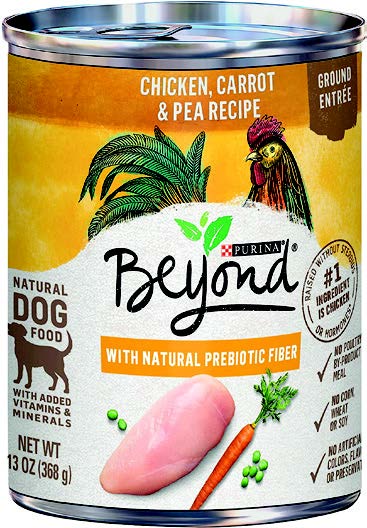
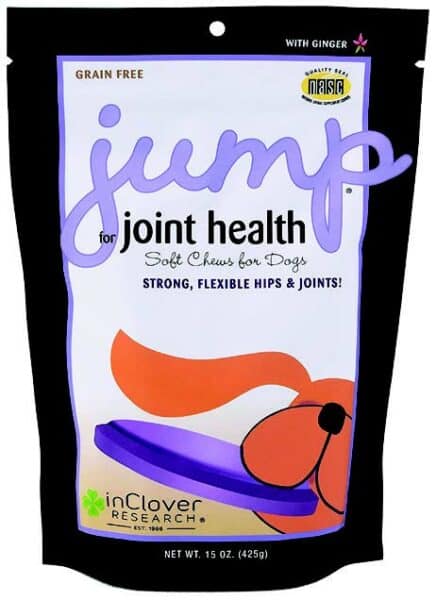
InClover’s Jump for Joint Health Soft Chews
